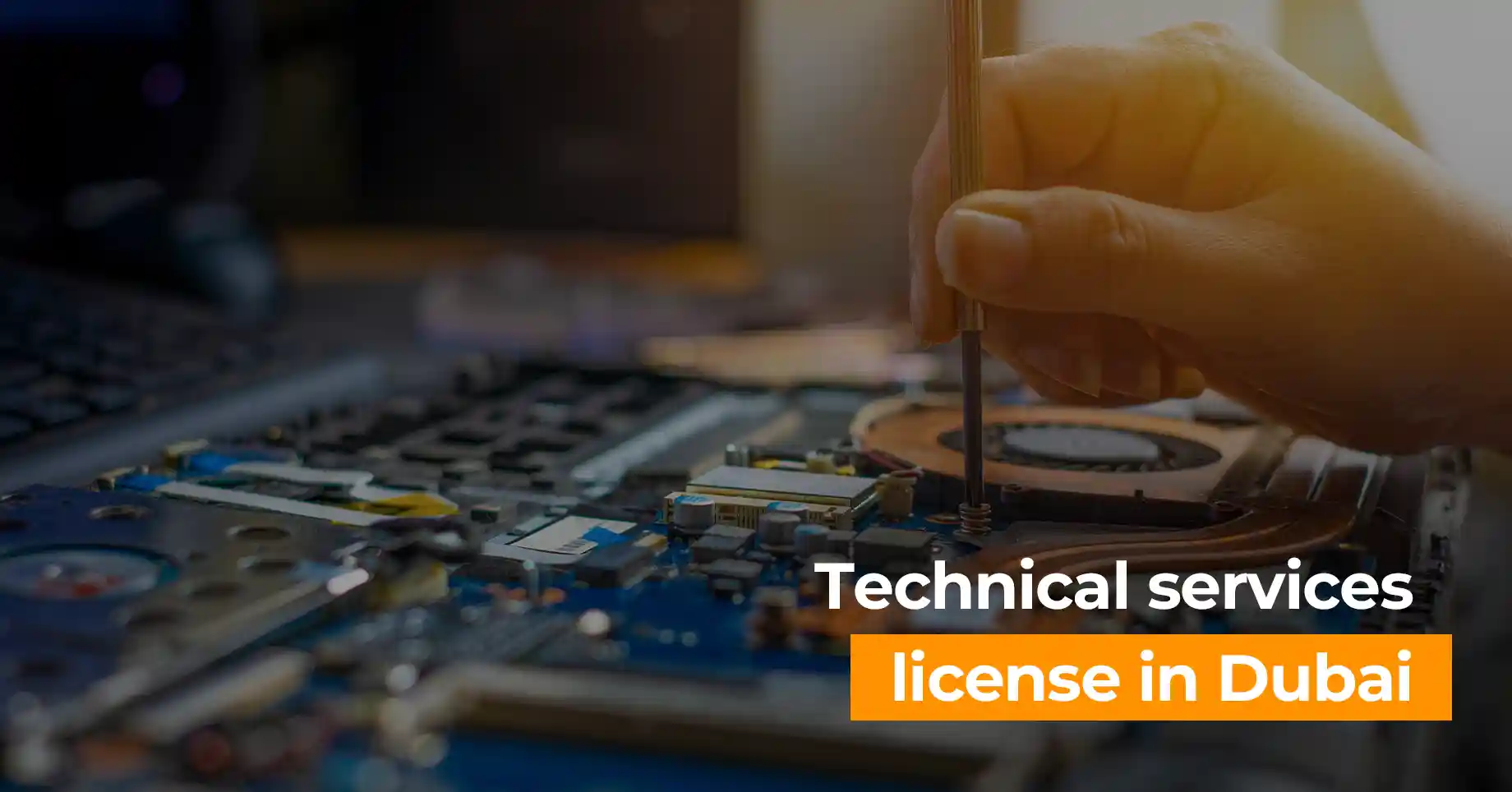Explore lucrative business opportunities across the Middle East.
Business News
Welcome to our journal. Here you can find the latest company news and business articles.

Read More
Steps to open a bank account in Dubai Free Zones.

Read More
Dubai has emerged as a leading global business hub due to its strategic location, pro-business government policies, world-class infrastructure, and cosmopolitan environment.

Read More
Step-by-step guide to obtaining a trading license in Sharjah.

Read More
Abu Dhabi offers a supportive business environment for entrepreneurs and investors looking to establish or expand their operations. An important step in setting up a business in the emirate is obtaining the relevant trade license, which allows you to

Read More
Dubai presents one of the most lucrative global launchpads for entrepreneurs given its strategic location, world-class infrastructure and supportive government policies.

Read More
The United Arab Emirates offers a compelling case for investors who want to tap into its rapidly expanding economy, tax-free regimes and strategic links to global markets.

Read More
Dubai attracts thousands of global entrepreneurs, investors and professionals who want to explore business and work opportunities in this dynamic commercial hub.

Read More
Dubai is regarded as the best city in the Middle East to start and launch a new business successfully as an expatriate or foreign investor.

Read More
Dubai has emerged as a top expatriate destination for Indians due to its thriving economy, tax-free salaries, and high standard of living. Its glitzy lifestyle and career opportunities also attract thousands of Indian expats each year who wish

Read More
Get the ultimate guide to leveraging Dubai Free Zones for business.

Read More
Dubai's red-hot real estate market attracts investors and agents worldwide. However, starting a real estate brokerage in the emirate comes with considerable costs. This article examines the expenses involved so you can make an informed business

Read More
Explore top online business ideas perfect for UAE entrepreneurs.

Read More
Comprehensive guide to the Emiratisation rules in UAE.

Read More
The United Arab Emirates (UAE) has recently announced new laws that will impact healthcare professionals working in the country. These laws aim to improve standards, protect patients, and facilitate growth within the healthcare sector.

Read More
Dubai has become a global destination for tourism, business, and employment. As one of the seven emirates of the United Arab Emirates (UAE), Dubai attracts visitors and expats worldwide.

Read More
Dubai has become a hub for international trade and commerce in the Middle East. Its strategic location, business-friendly environment, and world-class infrastructure make it ideal for trading operations.

Read More
Dubai's strategic location, connectivity, tax incentives, advanced infrastructure, and appealing lifestyle make it the leading hub for global business expansion and profitability in the Middle East.

Read More
This is an in-depth guide examining the top-rated countries for starting a business globally based on pivotal factors like ease of business registration, tax rates, funding access, infrastructure, workforce talent, and government incentives.

Read More
Learn how to renew your Emirates ID online in minutes with our simple, step-by-step guide. Save time and hassle today!

Read More
Dubai has become one of the most popular global destinations for foreigners looking to start or expand their businesses. Starting a business in Dubai has many advantages, from tax-free profits to world-class infrastructure and a strategic location

Read More
Insights into conducting business on Dubai Mainland.

Read More
Getting a business consultancy license in Dubai offers excellent opportunities to provide advisory services to companies across the UAE. However, the application process requires careful planning and preparation.

Read More
Indian entrepreneurs have great options to easily start international businesses in countries like Singapore, UAE, UK, and USA. Compare visa rules, infrastructure, paperwork, and funding options.

Read More
Comprehensive overview of business activities available in Dubai.

Read More
Your essential guide to understanding GDRFA services in Dubai.

Read More
Guide to business activities in Dubai's lucrative Free Zones.

Read More
Dubai is one of the most popular tourist destinations in the world. If you have extensive knowledge about Dubai and enjoy interacting with travellers, becoming a licensed tour guide can be a fulfilling and financially rewarding career path.

Read More
An overview of the technical services license required for Dubai's IT, engineering consulting and R&D firms. Details regulatory requirements, process and benefits of setting up in Dubai free zones or mainland.

Read More
Opening a bakery in Dubai or the UAE can be a rewarding business opportunity in a growing market. With tourism and populations rising, there is increasing demand for baked goods. This article will explore practical steps to start your bakery

Read More
Dubai has transformed dramatically in the past few decades, from a small pearling town to a global metropolis. With strategic government policies and a vision to establish Dubai as a major trade, logistics and tourism hub, key sectors have seen...

Read More
Overview of highly lucrative and in-demand business opportunities spanning tourism, retail, logistics, technology, healthcare, finance, energy and real estate sectors in Dubai based on market growth fundamentals.

Read More
Guidecovers the most profitable business opportunities in Dubai today, including analysis of retail, hospitality, import/export, professional services, ecommerce, and real estate based on Dubai's strategic advantages as a global trade and tourism hub

Read More
Dubai is known as a global hub for trade and commerce. Its diverse population and tourism industry contribute to high demand across numerous product categories.

Read More
Overview of key taxes in the United Arab Emirates - no personal income tax currently with exceptions for oil and banking. Main taxes are 5% VAT, 5% import duties and 55% corporate tax on oil companies.

Read More
Obtaining a business license in Dubai is mandatory for any commercial activity. The Department of Economic Development (DED) oversees the licensing process which involves choosing a business activity, location, legal form, trade name and applying for

Read More
Dubai's largest source of GDP is the oil and gas sector, followed by tourism, real estate, trade, and financial services. Dubai has focused economic policies to become a business and tourism hub.

Read More
Dubai is one of the top global hubs for business and commerce. Its strategic location, advanced infrastructure, and business-friendly regulations make it an ideal place to set up and grow a company.
.webp)
Read More
Operating a business involves choosing a legal structure, each with their own pros and cons. The core types of business are:

Read More
The United Arab Emirates (UAE) offers several options for business licensing depending on the type of company and activities. Choosing the right license is important for legally operating in the Emirates.

Read More
Dubai has become a hotspot for e-commerce in the Middle East, with its tech-savvy population, high internet penetration rates, and business-friendly environment.

Read More
Starting a business in Dubai can seem daunting, but with proper planning and preparation, it is very possible to launch and grow a successful company here.

Read More
Dubai provides a highly beneficial tax environment for foreign investors and entrepreneurs with no corporate, VAT or personal income taxes. Learn which business structures qualify for full tax exemption and how to leverage the benefits.

Read More
With business-friendly regulations, tax incentives and infrastructure, Dubai is becoming a leading hub for startups globally. This guide examines the pros and cons of launching a startup in Dubai.

Read More
What to expect when negotiating site agent salaries in Dubai.

Read More
Starting a website business can be an exciting and rewarding entrepreneurial journey. As Dubai continues to grow into a global business hub, there are plenty of opportunities for digital businesses based here.

Read More
Dubai is one of the most popular places in the Middle East to start and grow a small business. Its tax-free environment, world-class infrastructure, and business-friendly government policies attract entrepreneurs from around the globe.

Read More
How to secure funding for your startup in Dubai.

Read More
How foreign investors can own 100% of a company in Dubai.

Read More
Opportunities and tips for Indian entrepreneurs starting in Dubai.

Read More
How to start and run a Dubai business without a physical office.

Read More
Essential tips for successfully exporting from India to Dubai.

Read More
Step-by-step guide to owning and operating a shop in Dubai.

Read More
Learn how to start a Dubai business without a visa.
.webp)
Read More
Everything you need to know to start a business in Dubai.

Read More
Discover Amer Center Dubai, your gateway to streamlined government services in the UAE. Learn about its functions, services, and how it can simplify your life.

Read More
In the dynamic business landscape of Dubai, staying ahead of the competition and ensuring sustainable growth is paramount. One powerful tool that businesses in this thriving metropolis can utilize to achieve these goals is internal audits.

Read More
How to effectively calculate your business costs in Dubai.

Read More
Guide to amending your business license details in Dubai.

Read More
Tips on negotiating property prices in Dubai Business Bay.

Read More
Maximize your productivity in Dubai’s business lounges.

Read More
Getting a Dubai business visa is a crucial step for individuals seeking to explore business opportunities, establish partnerships, or invest in the thriving business landscape of Dubai.

Read More
Dubai has long been a global hub for business and commerce, known for its impressive skyscrapers, bustling economy, and unique blend of cultures.

Read More
Discover the key reasons behind the decline in Dubai's business environment. Explore factors ranging from economic shifts to global events impacting the city's commercial activities.

Read More
The United Arab Emirates (UAE) has emerged as a prominent global business hub, attracting entrepreneurs and investors from around the world.

Read More
Explore top investment opportunities across the UAE.

Read More
Individual and corporate sponsorships are vital sources of financial support for businesses in the UAE. They involve a financial arrangement where an individual or a corporation provides funding or resources to a business.

Read More
Are you seeking information about UAE Out Pass or exit permit and the process associated with them? Look no further! This detailed guide will provide you with a comprehensive overview of UAE Out Pass.

Read More
Learn about investor visa overstay fines, including penalties, consequences, and key considerations. Avoid costly mistakes by understanding the rules.
.webp)
Read More
Discover unknown features and benefits of your Emirates ID.

Read More
Renewing your Emirates ID is a straightforward process that ensures you stay legally compliant and enjoy the benefits of identification in the UAE.

Read More
Comprehensive guide to starting a business in Sharjah.

Read More
Finding a job in Dubai, a bustling metropolis known for its towering skyscrapers, luxurious lifestyle, and diverse opportunities, can be an exciting yet challenging endeavor.

Read More
Learn where to pay overstay fines at Dubai Airport. Find step-by-step instructions, essential information, and FAQs to ensure a hassle-free process.

Read More
Getting involved in legal issues can be a daunting experience, especially when it comes to dealing with an absconding case.

Read More
Abu Dhabi, the capital city of the United Arab Emirates (UAE), is a thriving business hub known for its dynamic economy and strategic location.
.webp)
Read More
Learn how to avoid common mistakes while applying for your Emirates ID.

Read More
Discover everything you need to know about Dubai visa requirements, from different visa types to the application process and essential documents.

Read More
Learn essential tips and guidelines to avoid Dubai visa fines while switching jobs. Understand the visa process, rules, and obligations to ensure a smooth transition.

Read More
Discover the top 5 traffic violations in Dubai that could lead to hefty fines. Stay informed and ensure road safety to avoid penalties from the Dubai Police.

Read More
Discover why the Emirates ID is set to revolutionize the future of digital identification. Learn about its features, benefits, and potential applications in this comprehensive guide.

Read More
Learn about the fines and consequences associated with overstaying an Abu Dhabi student visa. Know the regulations, penalties, and how to avoid getting into trouble.

Read More
Learn about the consequences of overstaying your visa for 28 days after cancellation. Understand the fines, penalties, and key takeaways to avoid such situations.

Read More
How to handle fines related to overstaying your Dubai residence visa.

Read More
Discover the key factors and advantages of setting up a business in Dubai or Sharjah. Make an informed decision for your entrepreneurial journey. Read more.

Read More
Learn the essential requirements for launching a successful food business in Dubai and Sharjah. This comprehensive guide covers permits, licenses, regulations, and more. Start your culinary venture with confidence!

Read More
Learn effective strategies and legal procedures to eliminate freezone absconding in Dubai and protect your business. Get expert advice and insights to resolve absconding issues swiftly.

Read More
Learn how to legally resolve absconding cases in Dubai after prolonged periods. Follow these steps, avoid legal troubles, and regain your freedom.

Read More
Discover the convenient locations and process to pay overstay fines in Abu Dhabi. Stay compliant with visa regulations and avoid unnecessary penalties. Find out how to settle your overstay fines hassle-free!
.webp)
Read More
Learn how to obtain an outpass for your baby to leave the UAE hassle-free. This comprehensive guide outlines the process, required documents, and essential tips for a smooth experience.

Read More
Discover the overstay fine in Sharjah and avoid legal troubles. Learn about penalties, visa regulations, and key takeaways in this comprehensive guide.

Read More
Discover the consequences of neglecting Dubai Police fines and how they can affect your life. Understand the importance of paying fines promptly.

Read More
Learn essential tips and guidelines to steer clear of Dubai Police fines while driving. Stay informed and protect yourself from unnecessary penalties on the roads.

Read More
Learn the differences and uses of Emirates ID versus passports.

Read More
Learn how to easily link your Emirates ID to your mobile number, ensuring seamless access to various government services and staying connected.

Read More
Discover the top business opportunities in Abu Dhabi. From real estate and tourism to finance and technology, explore the thriving industries and investment incentives in the UAE's capital city.

Read More
Discover the best time to visit Dubai for a memorable vacation. Explore the seasons, weather, and events to plan your trip and make the most of your stay in this vibrant city.

Read More
Discover the potential of investing in properties in Dubai. This comprehensive guide explores the benefits, risks, and factors to consider before making a decision. Explore the real estate market in Dubai and make an informed investment choice.

Read More
Discover how the Emirates ID serves as the gateway to accessing a plethora of government services efficiently. Learn how this essential identification card streamlines processes and enhances convenience for residents.

Read More
Learn how to obtain an outpass for a job seeker visa, ensuring a smooth transition and increased chances of employment abroad. Read on for step-by-step instructions and valuable tips.

Read More
Learn how to remove an employee from an absconding case in Dubai with this comprehensive guide. Understand the legal process, documentation requirements, and steps to resolve the issue effectively. Get expert advice and avoid potential complications.

Read More
Learn how to remove a false absconding from Abu Dhabi and avoid the negative consequences it can have on your personal and professional life. Follow these step-by-step guidelines to clear your name and regain your freedom.
.webp)
Read More
Manage fines related to overstaying your UAE visit visa.

Read More
Learn valuable tips and strategies to reduce overstay fines in Dubai and avoid legal complications. Discover how to stay within visa regulations and have a stress-free visit.

Read More
Learn how to pay overstay fines in the UAE efficiently and avoid any legal complications. This comprehensive guide provides step-by-step instructions, payment methods, and important information for resolving overstay fines.

Read More
Learn how to check overstay fines in the UAE to avoid any legal complications. Follow this comprehensive guide and find out the step-by-step process, fees, and online methods to check your overstay fine status.

Read More
Learn about the legal requirements for obtaining a trade license in Dubai. Understand the necessary steps, documents, and fees involved in setting up a business in this thriving city.

Read More
Ensure a successful Dubai business license application with the help of professional legal support. Discover the importance of expert guidance, compliance, and navigating legal complexities.

Read More
Learn about the essential documents required for setting up a business in Dubai. Find out the necessary paperwork, licenses, and permits needed to establish your company in the thriving business hub of Dubai.

Read More
Discover essential insights and tips for doing business in Dubai. Learn about the legal framework, cultural considerations, market opportunities, and more. Prepare yourself for success in the dynamic business landscape of Dubai.

Read More
Discover the top industries to invest in for a successful business setup in Dubai. Explore the potential sectors and opportunities available for entrepreneurs and investors.

Read More
Effective strategies for finding employment in Dubai.
.webp)
Read More
Tips for setting up your Dubai business on a budget.

Read More
Achieving business success in Dubai with expert consultants.

Read More
Explore the advantages and disadvantages of establishing and running a business in a Dubai Free Zone. Learn about tax benefits, streamlined procedures, limitations, and more.

Read More
Learn the step-by-step process to cancel your Dubai business license effectively. Understand the requirements, documentation, and procedures involved in terminating your business license in Dubai.

Read More
Essential steps to obtaining a business license in Dubai.

Read More
Find out the essential steps to selecting the perfect business name in Dubai. Learn about legal requirements, cultural considerations, and branding strategies for a successful business venture. Follow our expert guide today!

Read More
Upgrading your Dubai business license is crucial for growth and success. This SEO-optimized article provides a step-by-step guide, key takeaways, and answers FAQs, helping you navigate the process effectively. Read more now!

Read More
Discover how to easily verify the validity of your Dubai business license. Learn the steps and resources to ensure compliance and stay informed about your license status. Boost your business confidence today!

Read More
Expand your business in Dubai with the right licenses.

Read More
Understand the advantages of using business consultancy in Dubai.

Read More
Discover the top cities in Dubai for business and explore their unique offerings. From bustling financial hubs to vibrant commercial centers, find the perfect location for your business in Dubai.

Read More
Discover the advantages and disadvantages of obtaining a trade license in Dubai. Learn about the opportunities and challenges of starting a business in one of the world's leading commercial hubs.

Read More
Discover the benefits of setting up a mainland company in Dubai.

Read More
Discover the step-by-step process for setting up a business in Dubai as a non-residential individual. This comprehensive guide provides valuable insights and tips to navigate the requirements and regulations efficiently. Start your entrepreneurial jo

Read More
Benefits of hiring experienced business consultants in Dubai.

Read More
Guide to choosing the right business license for your Dubai venture.

Read More
Discover the various types of trade licenses in Dubai and learn how to navigate the licensing process. From professional licenses to industrial licenses, explore the requirements and benefits of each license category. Ensure your business thrives in

Read More
Discover 10 effective strategies to market your Dubai business and achieve remarkable success. From leveraging digital platforms to utilizing local networks, unlock the potential for growth and increased visibility.

Read More
How to find and hire top talent for your Dubai business.

Read More
Discover the essential steps and valuable insights on how to rent an office space in Dubai. From choosing the right location to understanding legal requirements, this comprehensive guide will help you navigate the process with confidence.

Read More
Discover the myriad benefits of obtaining a business license in Dubai. From enhanced credibility to access to a thriving market, find out how a license can propel your business forward. Explore the opportunities today!

Read More
Learn how to open a bank account for your Dubai business with this comprehensive guide. Discover the step-by-step process, requirements, and key considerations to ensure a smooth account setup in just a few clicks.

Read More
Insights into the different types of business licenses in Dubai.

Read More
Learn about the various types of business entities in Dubai and discover the best structure for your business. Explore the advantages, legal requirements, and key considerations for each entity type.

Read More
Discover why Dubai is the ideal destination to launch your business. Explore the strategic advantages, business-friendly environment, and diverse market opportunities that make Dubai an attractive choice for entrepreneurs.

Read More
Investor’s guide to real estate opportunities on Dubai Mainland.

Read More
Comparison of business setups in Dubai Mainland and Freezone.

Read More
Discover the key factors to consider when selecting an offshore jurisdiction in the UAE. This comprehensive guide provides valuable insights to help you make an informed decision.

Read More
Learn how to open a UAE offshore bank account and enjoy the benefits of international banking. Follow this step-by-step guide to get started today!

Read More
Explore the top benefits of Dubai Mainland for businesses.

Read More
Discover why the UAE has become the top choice as an offshore hub in the Middle East. Explore its strategic advantages, robust infrastructure, business-friendly policies, and more.

Read More
Avoid common mistakes in UAE offshore company formation. Learn key tips to ensure a successful process. Maximize opportunities, avoid delays & compliance issues.

Read More
Learn the step-by-step process to acquire a trade license in Dubai mainland. Discover the requirements, documents needed, and key tips to successfully start your business.

Read More
Discover the essential documents required for UAE offshore company formation. From legal paperwork to financial records, ensure a smooth setup process. Start your offshore venture today!

Read More
Discover five major benefits of setting up offshore in the UAE.

Read More
Attention Entrepreneurs! Looking to set up a business in Dubai Mainland? Look no further! Our Ultimate Guide has got you covered. From paperwork to licensing, we've got the insider tips to help you get started.

Read More
Discover how UAE Offshore can help you save on taxes. Learn about the top benefits of offshore companies in the UAE and maximize your tax savings today.

Read More
Are you looking for the perfect place to start your business? Look no further than Dubai Mainland! Here are 10 reasons why it's the best place to be.

Read More
Ultimate guide to applying for and using Emirates ID in 2023.

Read More
How to secure your UAE Golden Visa effectively in 2023.

Read More
Are you curious to know the hidden truths of Dubai's booming trading industry? Discover the untold stories and fascinating facts that no one talks about. Get the inside scoop now!

Read More
Navigate absconding cases with our essential tips for 2023.

Read More
Navigate the 2023 commercial license process in Dubai.

Read More
Crucial steps to take before your UAE visa expires.

Read More
Decide between Free Zone and Mainland formation in Dubai for 2023.

Read More
Don't get lost in Dubai's visa and residency regulations! Our expert guide simplifies the process, ensuring a seamless transition. Stay informed and stay ahead with our ultimate visa rules breakdown.

Read More
How Dubai’s economic vision is transforming the business landscape.

Read More
Why Dubai Free Zones remain attractive for businesses in 2023.

Read More
Find the best locations in Dubai for your business setup.

Read More
Choosing the best legal structure for your Dubai business.

Read More
Uncover the best industries for business in Dubai this year.

Read More
The United Arab Emirates (UAE) is a popular destination for both tourists and expatriates, with a diverse and multicultural population.

Read More
The new year has come with lots of opportunities for entrepreneurs and workers and employees in the UAE, introducing a new insurance scheme for employees

Read More
Insights into Dubai's D33 economic plan aiming for AED 32 trillion by 2033.

Read More
Follow these essential steps to start your company in the UAE.

Read More
Complete guide to obtaining and benefiting from the UAE Golden Visa.

Read More
Business licenses in Dubai can be acquired quick, easy, and on budget. Here are the three types of eCommerce licenses in UAE. Call Now at +971 42 46 3894.
